Speeches Shim
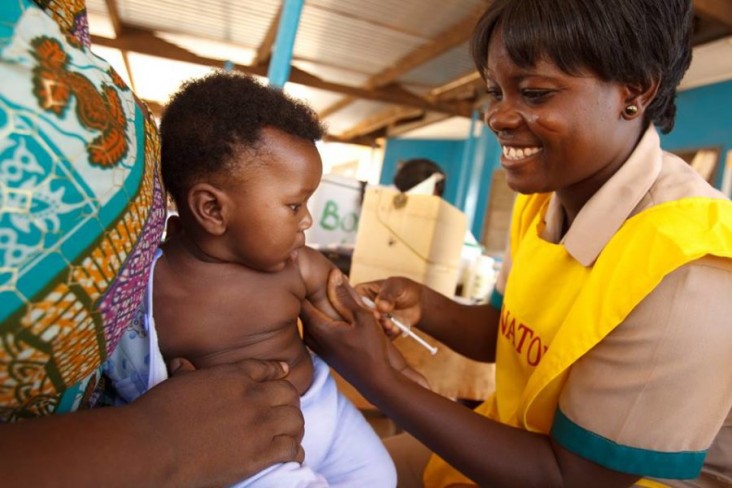
Situated within a region spanning 15 countries that comprise the Economic Community of West African States (ECOWAS), with a rapidly growing population of 390 million, USAID’s key health program areas include Family Planning and Reproductive Health (FP/RH), HIV/AIDS, Maternal and Child Health (MCH), Nutrition, One Health and Health Systems Strengthening. Due to limited resources, USAID has identified focus countries where direct service delivery impact on FP/RH and HIV/AIDS is shared for replication and scale-up. USAID aims to accelerate progress towards regional and global health strategic priorities, including those for Ending Preventable Child and Maternal Deaths, Controlling the HIV/AIDS Epidemic, Combating Infectious Diseases and FP2020. It accomplishes this through donor coordination, as well as assisting the West African Health Organization (WAHO)
PARTNERSHIPS
Partnerships are critical to success in achieving better health outcomes in the region. USAID has taken a leadership role in advancing donor coordination in West Africa through the Ouagadougou Partnership.Ouagadougou Partnership
The Partnership includes the governments of nine francophone West African countries supported by USAID, the French Ministry of Foreign Affairs, the Agence Française de Développement, the Gates and Hewlett Foundations, the United Nations Fund for Population Assistance (UNFPA), West African Health Organization (WAHO) and others. Its aim is to mobilize additional funding from donors and domestic resources and support costed national plans for family planning (FP) to target and reach 2.2 million additional users by 2020 in line with FP2020 goals.
USAID also collaborates directly with WAHO, the Joint United Nations Regional Team on AIDS (JURTA) and the Global Fund to leverage funding through collaboration and co-investment in activities as appropriate
Family Planning and Maternal and Child Health
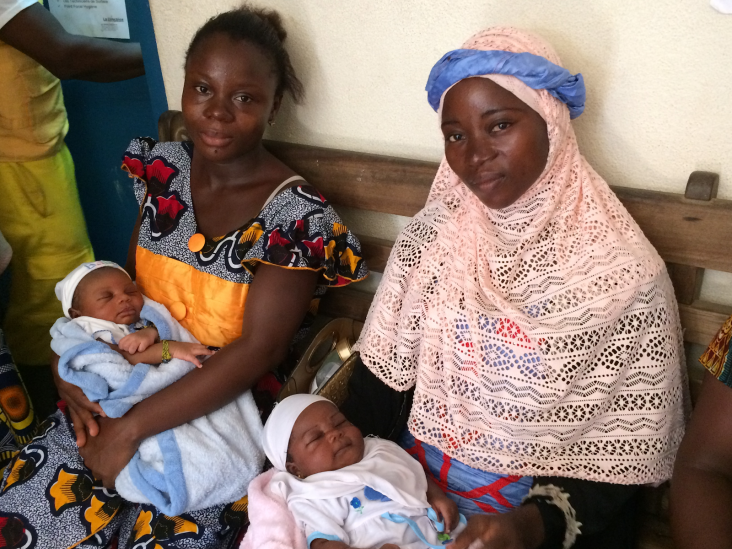
USAID promotes expanded access to and utilization of quality family planning (FP) services. This means greater use of community health workers (CHWs) and engaging midwives and nurses at primary-level clinics, and other clinicians to share/shift tasks to provide FP counseling and a full range of contraceptives, including long-acting contraceptive methods. It also requires integration of FP services with other health services, such as antenatal, labor and delivery, postnatal care, well child visits, fistula, nutrition and HIV/AIDS prevention, treatment and care. Finally, it necessitates that health service providers tailor their practices to meet the needs of and facilitate access for youth. To ensure results, USAID supports commodity security through a regional Contraceptive Early Warning System for 15 countries to coordinate stock data and address stock imbalances. In partnership with WAHO, USAID supports regional efforts to increase access to postpartum family planning that contributes to achieving the Sustainable Development Goals, an essential aspect to the region’s journey to self-reliance.
USAID supports fistula prevention, treatment and care activities to women in need in Niger which also serves as a regional learning hub to advance the WAHO regional fistula elimination agenda. In 2018, the ECOWAS Assembly of Health Ministers adopted a resolution to end fistula by 2030. USAID is supporting WAHO in the operationalization of this resolution with a focus on workforce capacity development to increase the pool of repair surgeons.
HIV/AIDS Prevention, Care and Support
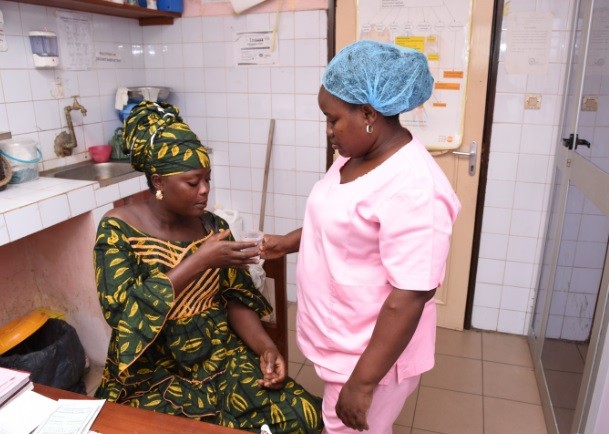
A strategic shift in HIV programming and management has been undertaken in certain countries in West Africa. PEPFAR’s West Africa Regional platform includes activities for Ghana, Togo, Burkina Faso, Mali, Senegal and Liberia which are now articulated in a Regional Operational Plan.With a focus on key populations (KP) and people living with HIV (PLHIV) programming and the scale-up of effective and innovative practices (i.e. index testing, enhanced peer outreach, differentiated service delivery with multi-month ARV prescribing and dispensing, active monitoring and research of defaulters, and transition to the fixed-dose combination (TLD), PEPFAR is focused on supporting countries towards the achievement of epidemic control. Relative to other countries in the PEPFAR West Africa region, Burkina Faso and Togo have a smaller gap to reach epidemic control. As such, USAID has been provided with supplemental funding to work closely with government counterparts to accelerate national progress towards the 90-90-90 targets in fiscal years 2020 and 2021, increasing the likelihood of Burkina Faso and Togo becoming the first countries in West Africa to reach epidemic control. In addition, USAID will increase support to WAHO to champion HIV/AIDS policy adoption and implementation by ECOWAS member states.
Local Capacity Strengthening
To address policy barriers and support advocacy efforts at regional, national and sub-national levels, USAID focuses on developing the capacity of regional, government, civil society, and other partners around policy issues related to FP/RH, HIV, maternal and child health, nutrition and infectious diseases. At the regional level, USAID partners with the WAHO to strengthen their capacity in order to fully execute its mandate of harmonizing health policies, pooling resources, and fostering collaboration and integration to address regional health priorities. This includes strengthening organizational structures to ensure that leadership, management and governance principles are incorporated in the organization’s culture; developing regional strategies in health; and engaging the private sector to mobilize resources. In addition, USAID supports the ECOWAS Best Practices in Health Forum, which provides an opportunity for south-to-south exchange by bringing together key stakeholders in the region to review best practices and share lessons learned.
Research and Evaluation
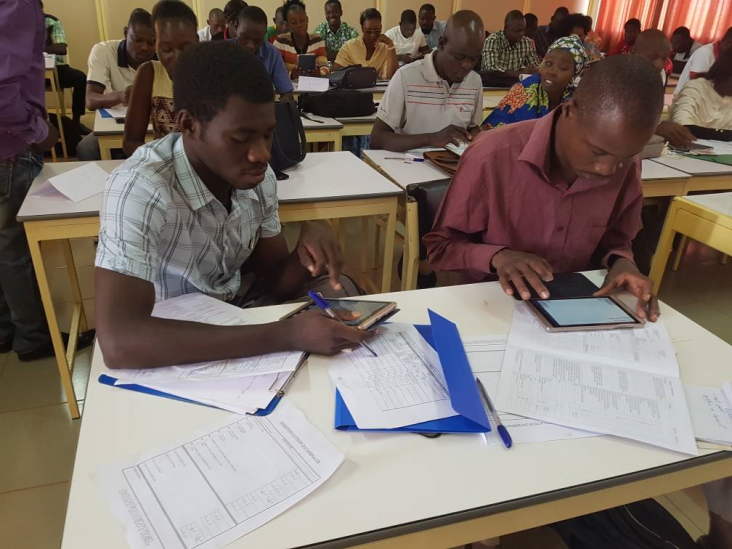
USAID advocates for robust evaluation and research to generate evidence that can be used by stakeholders in policy formulation and health care practices. As part of this effort, USAID works with local research institutions to conduct performance evaluations and other studies for its regional activities, widely disseminating findings to government and other stakeholders throughout the regional. USAID also provides technical assistance to selected countries in the region to undertake Demographic Health Surveys.
Private Sector Engagement
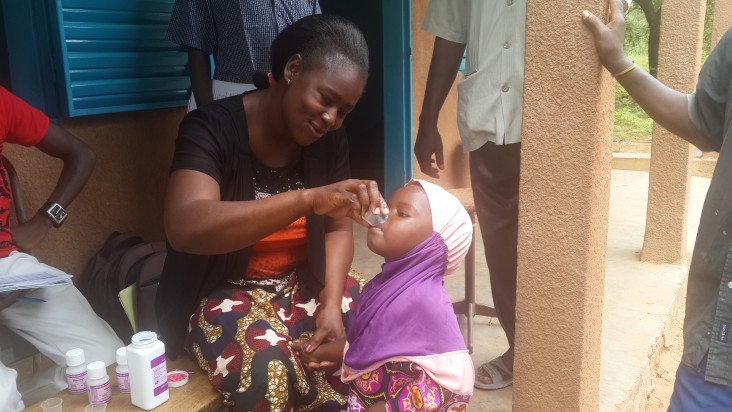
USAID’s influence is directly associated with leveraging resources across the region, galvanizing efforts of stakeholders and promoting self-reliance through engagement of multiple partners. As such, exploration of innovative partnerships with the private sector is a key opportunity within the region and includes: harnessing private-sector capital through a Development Credit Authority for health enterprises; and supporting private sector alliances of health care providers and institutions at the country and regional level to create public-private partnership platforms for strategic dialogue.
NUTRITION
A comprehensive multi-sectoral approach to strengthening food security and food safety systems is a critical component to West Africa’s journey to self-reliance. Thus, the Regional Health Office and the Regional Economic Growth Office will partner with the West African Health Organization (WAHO) to convene diverse stakeholders and facilitate the coordination of scaling up nutrition-specific and nutrition-sensitive interventions and policies in order to strengthen food security across the region. The intended goals are to increase access to safe and nutritious foods through strengthened food safety systems, improve nutrition monitoring and surveillance systems, and harmonize and scale regional fortification and biofortification policies and technologies. USAID will seek opportunities to partner with the private sector to leverage additional resources contributing to USAID’s multi-sectoral nutrition objectives.
GLOBAL HEALTH SECURITY AGENDA
Through USAID’s investments and its leadership role in the global health security agenda of the region, it catalyzes and facilitates cross-sectoral partnerships with other donors to leverage resources to address One Health issues. USAID is supporting WAHO to implement ECOWAS’ Regional One Health Approach, for which WAHO is the designated lead institution. WAHO has also established the ECOWAS Regional Centre for Surveillance and Disease Control, which serves to protect West Africans from health threats and monitor the region’s health security. The establishment of this center is also a strong effort towards recognizing that the health of humans is connected to the health of animals and the environment. With an equally integral role in implementing One Health, USAID has directly supported the Regional Animal Health Center (RAHC), which is the ECOWAS technical agency on animal health, and continues to support its coordination with WAHO on One Health.
Learn More
West African Health Organization

Comment
Make a general inquiry or suggest an improvement.